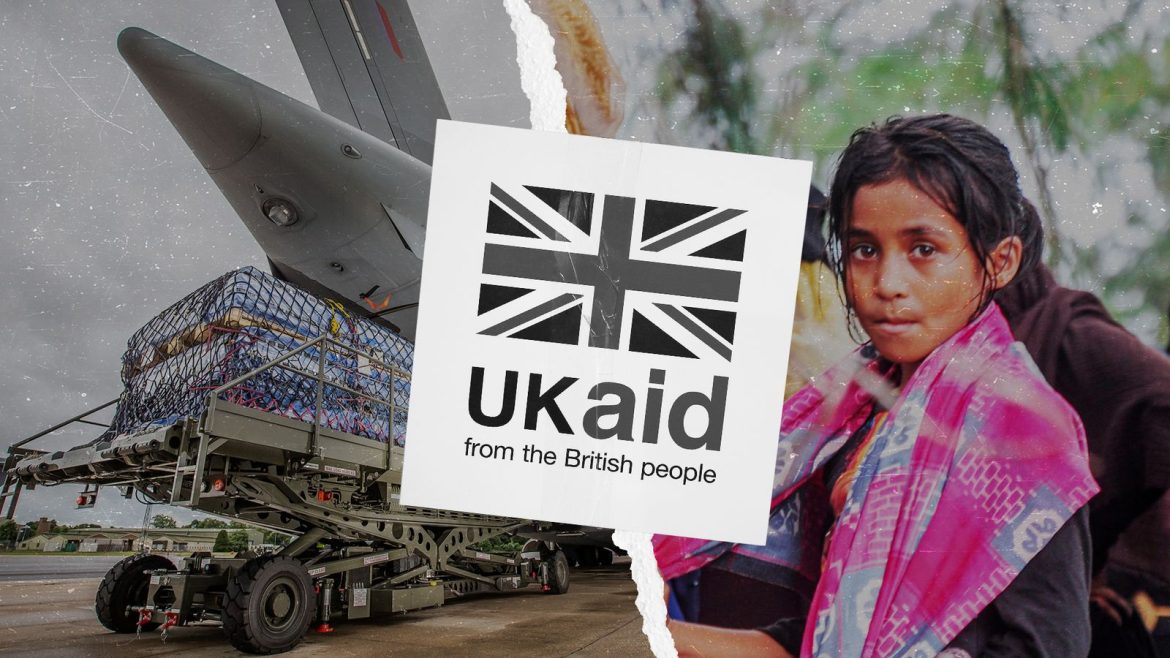The United Kingdom has announced a major cut to its foreign aid budget, reducing it by 40% — from 0.5% of Gross National Income (GNI) to 0.3%. The move, which was first disclosed in February, comes as the British government seeks to increase defence spending to 2.5% of GNI, following pressure from the United States and shifting international priorities.
According to new reports from the Foreign, Commonwealth and Development Office (FCDO), Africa is set to face the most severe reductions. The cuts will heavily affect critical sectors like women’s health, children’s education, and water sanitation projects. Aid organisations and international observers warn that the reductions could increase risks of disease and death across vulnerable populations on the continent.
Bond, a UK-based network of international development charities, expressed deep concern, stating that the burden will fall most on women and children in the poorest and most marginalised communities. Gideon Rabinowitz, Bond’s policy director, criticised the government’s decision, saying, “The world’s most marginalised communities, particularly those experiencing conflict and women and girls, will pay the highest price for these political choices.”
He added that at a time when other nations, like the United States, are withdrawing support for gender-related programmes, the UK should be stepping up its role, not stepping back.
The FCDO impact assessment shows that the Occupied Palestinian Territories will also see a funding drop of 21%, despite earlier commitments by the government to protect spending in that region. In addition, countries such as South Sudan, Ethiopia, and Somalia — all dealing with humanitarian crises — are reportedly among those that will experience sharp declines in bilateral aid.
The UK government defended its decision by stating that it followed a “line-by-line strategic review” of aid programmes. Baroness Jenny Chapman, the Minister for Development, explained that the review focused on setting clear priorities, increasing efficiency, and protecting live contracts and planned humanitarian assistance. She said, “Every pound must work harder for UK taxpayers and the people we help around the world, and these figures show how we are starting to do just that.”
Despite the heavy cuts in bilateral aid — money that goes directly to recipient countries — the government has chosen to maintain or even protect spending on some multilateral aid bodies. These include international institutions such as the World Bank and the Gavi vaccine alliance.
The International Development Association (IDA), the World Bank’s fund for the poorest countries, will receive £1.98 billion from the UK over the next three years. The government said this funding would help improve the lives of 1.9 billion people worldwide.
Some critics argue that protecting contributions to multilateral organisations while slashing direct bilateral funding reflects a prioritisation of influence and international image over impact on the ground. The government insists that underperforming organisations may also face funding reviews in the future.
The UK’s foreign aid budget has long been a topic of political debate. Under the Labour governments of Sir Tony Blair and Gordon Brown, the UK committed to spending 0.7% of GNI on overseas aid. This target was achieved in 2013 during the Conservative-Liberal Democrat coalition under David Cameron and was made legally binding in 2015.
However, the economic impact of the COVID-19 pandemic led to the Conservative government reducing the aid budget to 0.5% in 2021, a move that drew criticism from many aid groups and political figures. With the new cut to 0.3%, aid spending is now at its lowest level in over a decade.
The government’s current position appears to reflect shifting public sentiment. At least one cabinet minister has acknowledged that public support for foreign aid spending has declined. Still, aid groups warn that short-term domestic political considerations should not outweigh the UK’s long-standing commitment to supporting global development and humanitarian efforts.
As the government prepares to channel more funds into defence, many humanitarian organisations fear that lives could be lost as a result of the cuts, especially in fragile regions already grappling with conflict, hunger, and climate-related disasters.
